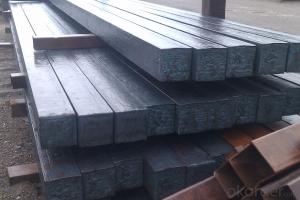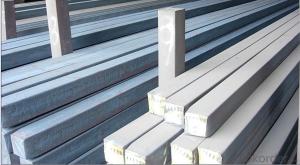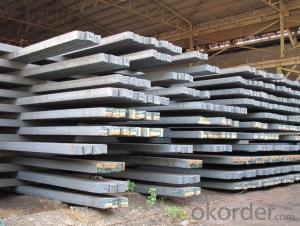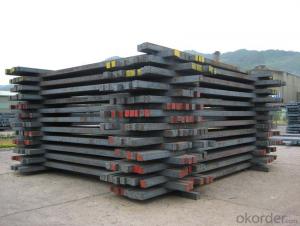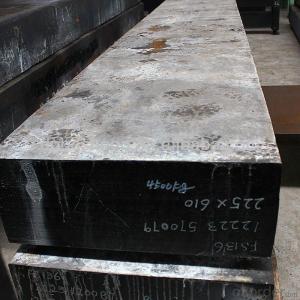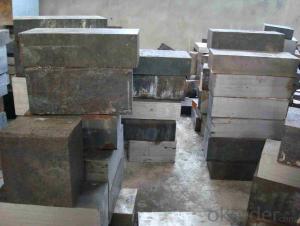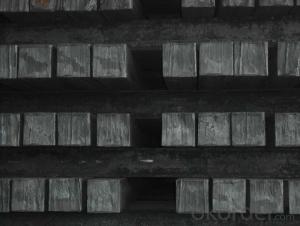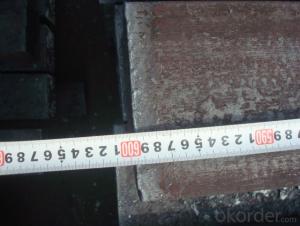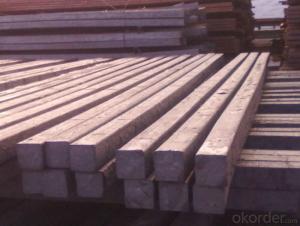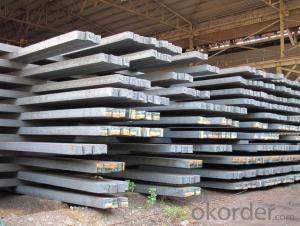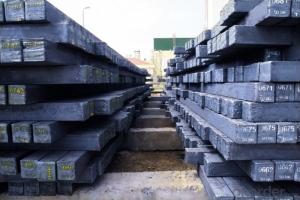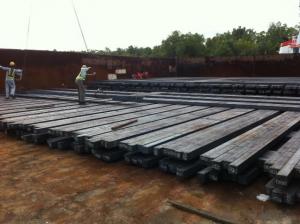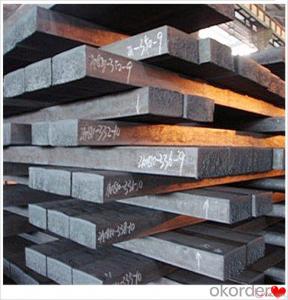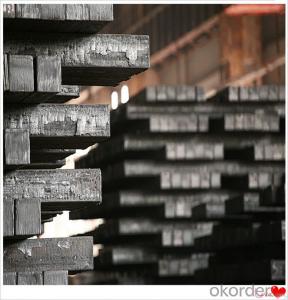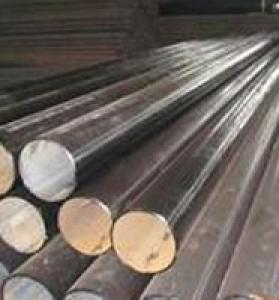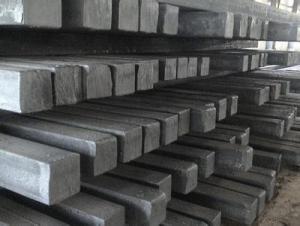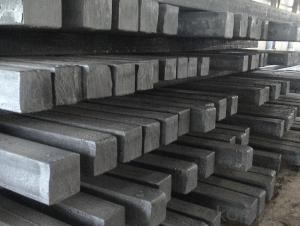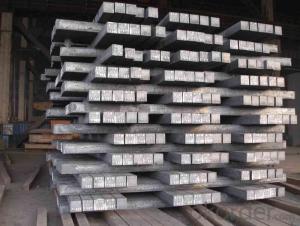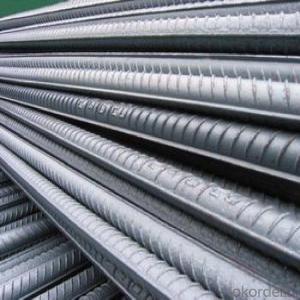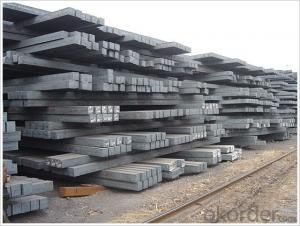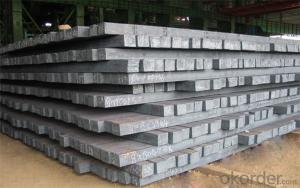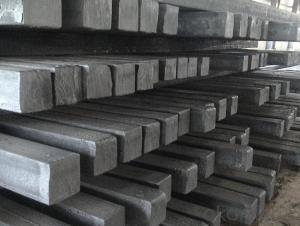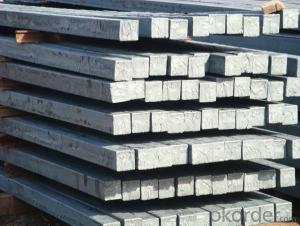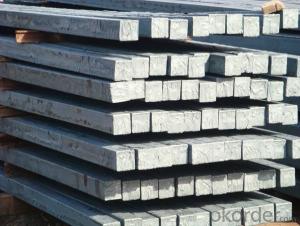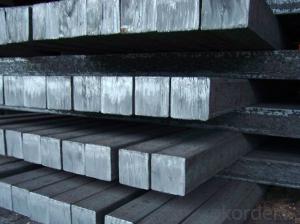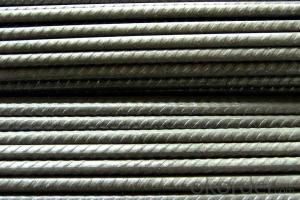Prime square alloy steel billet 135mm Q235
- Loading Port:
- Shanghai
- Payment Terms:
- TT OR LC
- Min Order Qty:
- 100 m.t.
- Supply Capability:
- 10000 m.t./month
OKorder Service Pledge
OKorder Financial Service
You Might Also Like
Structure of Prime square alloy steel billet 135mm Q235
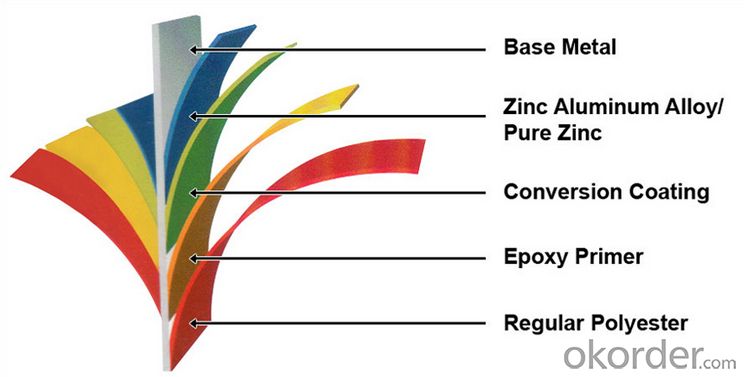
Description of Prime square alloy steel billet 135mm Q235
Manufacture Progress:HRC-CRC-GALVANIZED-COLOR COATED
Application : Construction, electrical, transportation, steel plant, composite board plant, steel tile factory
Payment & Shipping Terms:T/T ,L/C, and FOB CHINA
Minimum Order Quantity: 25Tons
Packge Type: Moisture-proof paper inner,Steel outside,Bundle by steel rope.
Package in Container : Wood as a foot pad, wire rope reinforcement,PPGI steel coil tied together by steel rope.
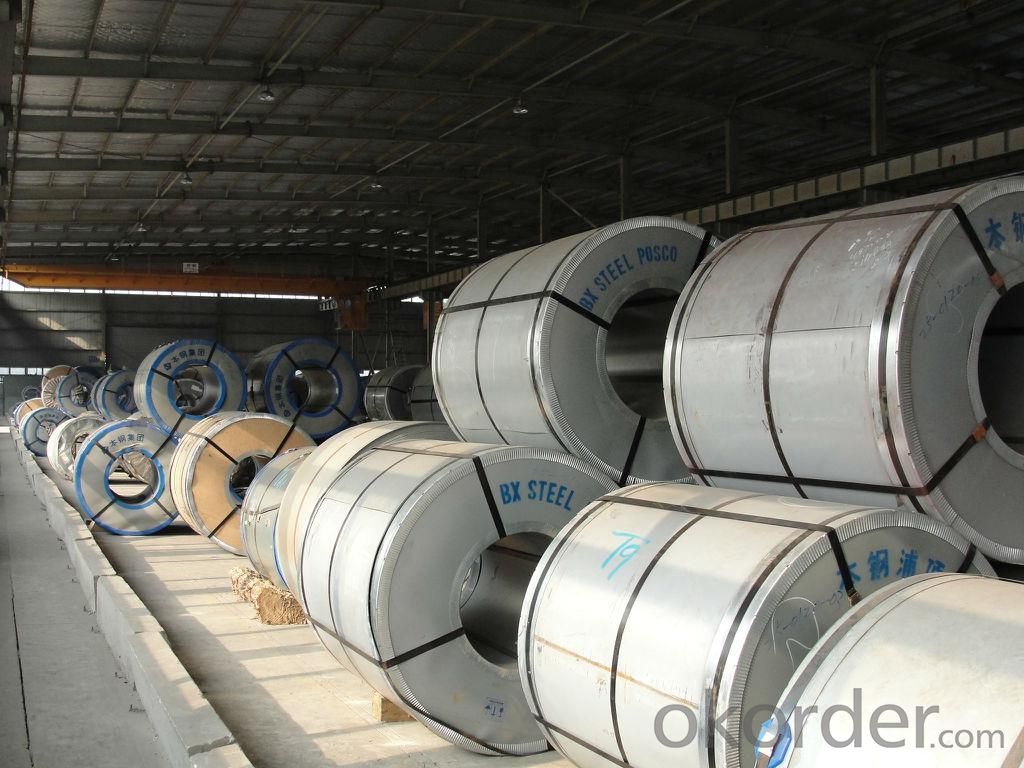
Main Feature of Prime square alloy steel billet 135mm Q235
Uncoated CR steel sheet
With the features of in line with the international highest standards in demension and shape, excellent surface finish and properties, the products are mainly used in home appliance and automobile industries.
Galvanized steel sheet(include HDG and EG)
With the features of good corrosion resistance, the products are mainly used in automobile, home appliance, electronics, building and machinery manufacture industries, etc.
Precoated steel sheet
With the features of enviromental protection and good processablility, long lasting surface durability, rich in colors, the products are maily used in building, home appliance and furniture industries, etc.
Applications of Prime square alloy steel billet 135mm Q235
1) Excellent corrosion resistance: The zinc layer provides a good protection of Pre-painted Galvanizeed Steel Sheet.
2) High heat resistance: The reflective surface of the material aids in efficiently reflecting the sunlight away and in turn reducing the amount of heat transmitted. The thermal reflectivity converts into energy savings.
3) Aesthetics: Pre-Painted Galvanized steel sheet is available in plethora of patterns and multiple sizes as per the requirements that given by our customers.
4) Versatility: can be used in the various areas.
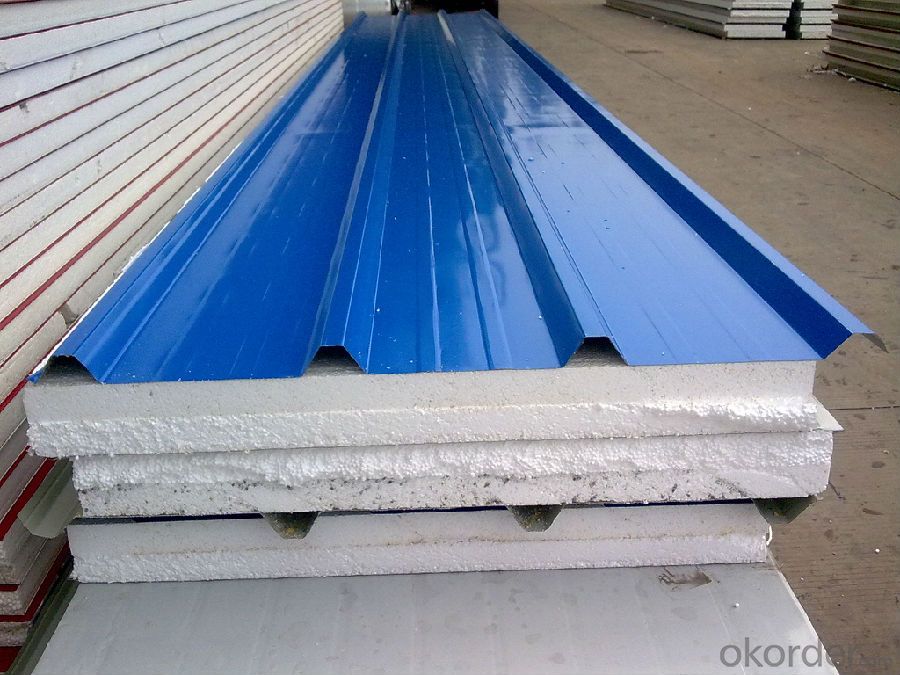
Specifications of Prime square alloy steel billet 135mm Q235
Product | Billet |
Material Grade | SGCC / SGCH / DX51D+AZ, etc |
Thickness | 0.6-3.0mm |
Width | 500-1500mm |
Tolerance | Thickness: +/-0.02mm , Width:+/-2mm |
Zinc-coating | Z30-150g/m2 |
Technique | Raw material: Hot rolled steel coil --> Cold rolled_>hot dipped galvalume |
Surface | Dried, Chromated, Unoiled |
Spangle | Regular spangle , small spangle, zero spangle |
ID | 508MM 610MM |
Coil weight | 1-25MT |
Export package | Cardboard inner sleeves, Waterproof paper, galvanized steel covered and steel strip packed |
FAQ of Prime square alloy steel billet 135mm Q235
We have organized several common questions for our clients,may help you sincerely:
1. How Can I Visit There?
Our company is located in Tianjin City, China, near Beijing. You can fly to Tianjin Airport Directly. All our clients, from home or aboard, are warmly welcome to visit us!
2. How Can I Get Some Sample?
We are honored to offer you sample.
3. Why choose CNBM?
we always fix steel produce in container well to make it safe arrive at destination port
we always provide best and professional forward service for our buyer
we always apply 14days free detention for our buyers container in destination
we provide one set After-sales service for our buyer
we provide China inland steel market price report
we help our buyer become number one in local market .
- Q:What are the specifications for steel billets used in the defense industry?
- The specifications for steel billets used in the defense industry vary depending on the specific application and requirements. However, there are certain common specifications that are generally followed. Firstly, the steel billets used in the defense industry need to have high strength and durability to withstand extreme conditions and potential impacts. They are often required to have a high tensile strength, typically above 500 MPa, and excellent toughness to resist fracture or deformation. Additionally, the steel billets used in the defense industry must possess good corrosion resistance properties. This is crucial to ensure the longevity and reliability of the equipment and structures used in defense applications, especially when exposed to harsh environments or corrosive elements. In terms of dimensional specifications, the steel billets used in the defense industry are typically required to have precise dimensions and tolerances. This is to ensure compatibility and proper fitment during the manufacturing process and assembly of defense equipment. Furthermore, strict quality control measures are implemented for steel billets used in the defense industry. They must adhere to various industry standards and certifications, such as MIL-SPEC (Military Specifications), to guarantee the highest level of quality, performance, and safety. Lastly, depending on the specific application, additional specifications such as heat treatment requirements, chemical composition, and non-destructive testing may also be specified for steel billets used in the defense industry. It is important to note that the exact specifications for steel billets used in the defense industry may vary based on the specific requirements of each defense project, and it is essential to consult the relevant defense industry standards and guidelines for accurate and up-to-date specifications.
- Q:How does the composition of steel affect the properties of steel billets?
- The composition of steel, including the ratios of different elements and the impurities present, significantly influences the properties of steel billets. For instance, the amount of carbon in steel affects its strength and hardness, with higher carbon content resulting in harder and stronger steel. Alloying elements like chromium, nickel, and molybdenum can be added to enhance specific properties such as corrosion resistance, heat resistance, or toughness. Furthermore, impurities like sulfur and phosphorus can negatively impact the ductility and weldability of steel. Hence, the composition plays a crucial role in determining the overall quality and performance of steel billets.
- Q:What are the potential applications of steel billets in the mining industry?
- Steel billets have various potential applications in the mining industry. They can be used as raw material for the production of mining equipment, such as drill bits, shovels, and conveyor systems. Additionally, steel billets can be used in the construction of mine infrastructure, including support structures, platforms, and walkways. Their high strength and durability make them suitable for heavy-duty applications within the mining sector.
- Q:How are steel billets used in the manufacturing of machinery?
- Steel billets are an essential component in the manufacturing of machinery due to their versatility and strength. These cylindrical metal bars, typically made from carbon or alloy steel, serve as the raw material that is transformed into various machine parts and components. One common application of steel billets in machinery manufacturing is for the production of machine frames and structures. The billets are heated and then hot-rolled or forged into the desired shape, ensuring the final product has the necessary strength and durability to withstand the mechanical stresses it will encounter during operation. Additionally, steel billets are used to create machine components such as gears, shafts, and axles. These parts require high tensile strength and resistance to wear and deformation, making steel billets the ideal material choice. The billets are typically machined or forged into the desired shape, ensuring precise dimensions and tolerances are met. Furthermore, steel billets can also be used in the manufacturing of machine tools, which are crucial for shaping and machining various materials. By using steel billets as the base material, machine tools can effectively handle heavy loads, provide stability, and ensure precision in the manufacturing processes. In summary, steel billets are integral to the manufacturing of machinery, as they provide the necessary strength, durability, and versatility required for the production of machine frames, components, and tools. Their ability to be shaped, machined, and forged into various forms allows for the creation of high-quality machinery that can effectively perform its intended functions.
- Q:What is the typical hardness of a steel billet?
- The typical hardness of a steel billet can vary depending on various factors such as the specific type of steel, the manufacturing process, and the intended use of the billet. In general, steel billets are designed to possess a certain level of hardness to ensure their suitability for subsequent processing and applications. Hardness in steel is often measured using the Rockwell hardness scale, which assigns a numerical value based on the depth of penetration of an indenter into the material. Steel billets typically have a hardness ranging from 20 to 70 on the Rockwell C scale (HRC), with higher values indicating greater hardness. However, it is important to note that the desired hardness can vary depending on the intended use of the billet. For example, if the billet is intended for use in structural applications or as a raw material for further processing, it may have a lower hardness to facilitate subsequent shaping and forming processes. On the other hand, if the billet is meant for applications that require high strength and wear resistance, such as in the production of tools or machinery components, it may have a higher hardness. Ultimately, the typical hardness of a steel billet will depend on the specific requirements and specifications of the intended application, and it is important to consult the relevant standards or technical specifications to determine the appropriate hardness range for a particular steel billet.
- Q:What is the role of steel billets in the production of railway wagons?
- The role of steel billets in the production of railway wagons is crucial as they serve as the primary raw material for manufacturing various components of the wagons. Steel billets are essentially semi-finished steel products that are cast into a specific shape, typically a square or a rectangle, and are used as the starting point for further processing. In the production of railway wagons, steel billets are first heated to a high temperature and then passed through a series of rolling mills to shape them into desired forms such as beams, plates, angles, channels, or other structural components. These components form the structural framework of the wagons, providing strength, durability, and stability. Steel billets are preferred in this process due to their exceptional strength and ability to withstand heavy loads, making them ideal for railway applications. They possess excellent mechanical properties, including high tensile strength, which ensures the wagons can endure the stresses and strains experienced during operation. Moreover, the use of steel billets allows for flexibility in design and customization, as they can be easily shaped and formed according to specific requirements. This adaptability enables manufacturers to produce railway wagons of various sizes, configurations, and capacities, catering to different transportation needs. Furthermore, steel billets are highly resistant to corrosion, which is particularly important for railway wagons exposed to harsh environmental conditions, such as rain, snow, and humidity. This resistance helps to maintain the structural integrity of the wagons, preventing premature deterioration and ensuring their long service life. Overall, the role of steel billets in the production of railway wagons is indispensable. They provide the necessary strength, durability, and customization options required for manufacturing robust and reliable wagons that can withstand the demanding conditions of railway transportation.
- Q:Who knows the diamond is?Who knows the diamond is carbon? Is it C60?
- It is also called the diamond diamond, crystal, it is not the molecules themselves, so the formula does not apply to.C said it is only by this kind of carbon elements. While C60 is footballene is another matter, the 60 is because it is a molecular crystal, each molecule consists of 60 carbon.
- Q:What are the common heat treatment processes for steel billets?
- The common heat treatment processes for steel billets include annealing, quenching and tempering, normalizing, and case hardening.
- Q:What is the role of steel billets in the manufacturing of machinery?
- Steel billets play a crucial role in the manufacturing of machinery as they serve as the raw material for creating various machine components. These billets are heated, shaped, and then further processed to produce different parts such as gears, shafts, and structural frames. The high strength and durability of steel make it an ideal material for machinery, ensuring the final products are capable of withstanding heavy loads and harsh conditions.
- Q:How are steel billets cooled after the manufacturing process?
- Steel billets are typically cooled after the manufacturing process using methods such as air cooling, water quenching, or accelerated cooling techniques.
1. Manufacturer Overview |
|
|---|---|
| Location | |
| Year Established | |
| Annual Output Value | |
| Main Markets | |
| Company Certifications | |
2. Manufacturer Certificates |
|
|---|---|
| a) Certification Name | |
| Range | |
| Reference | |
| Validity Period | |
3. Manufacturer Capability |
|
|---|---|
| a)Trade Capacity | |
| Nearest Port | |
| Export Percentage | |
| No.of Employees in Trade Department | |
| Language Spoken: | |
| b)Factory Information | |
| Factory Size: | |
| No. of Production Lines | |
| Contract Manufacturing | |
| Product Price Range | |
Send your message to us
Prime square alloy steel billet 135mm Q235
- Loading Port:
- Shanghai
- Payment Terms:
- TT OR LC
- Min Order Qty:
- 100 m.t.
- Supply Capability:
- 10000 m.t./month
OKorder Service Pledge
OKorder Financial Service
Similar products
New products
Hot products
Hot Searches
Related keywords
